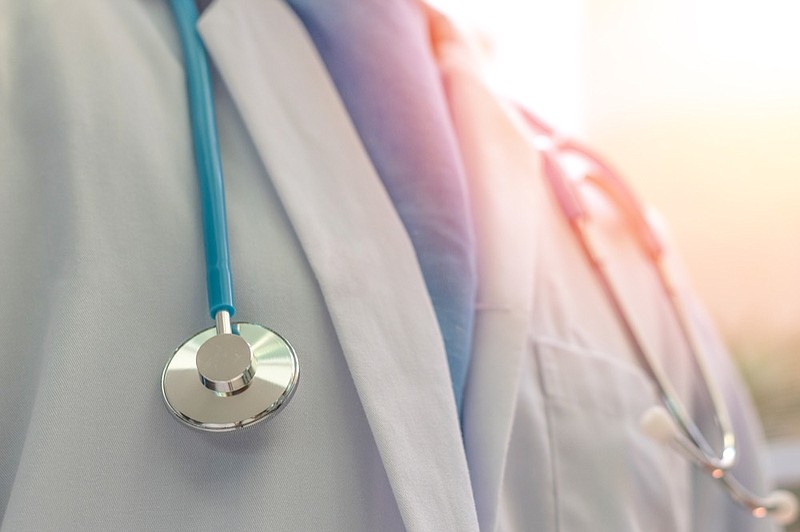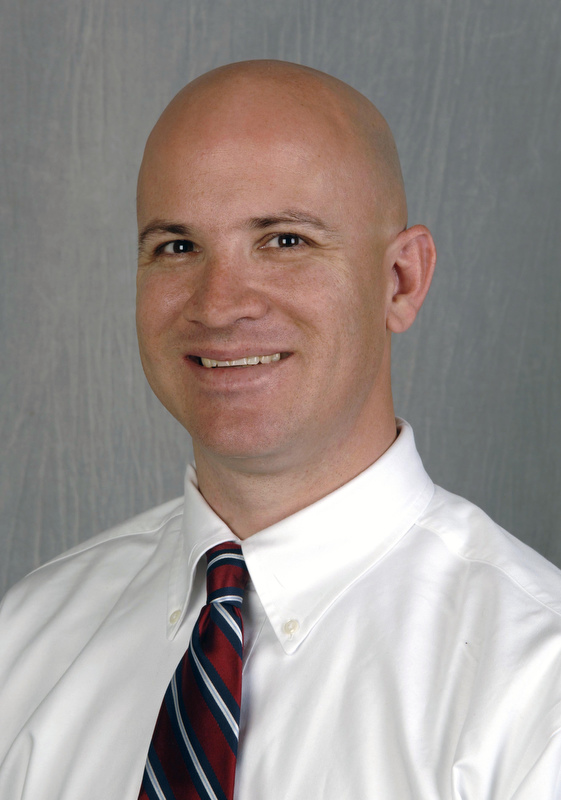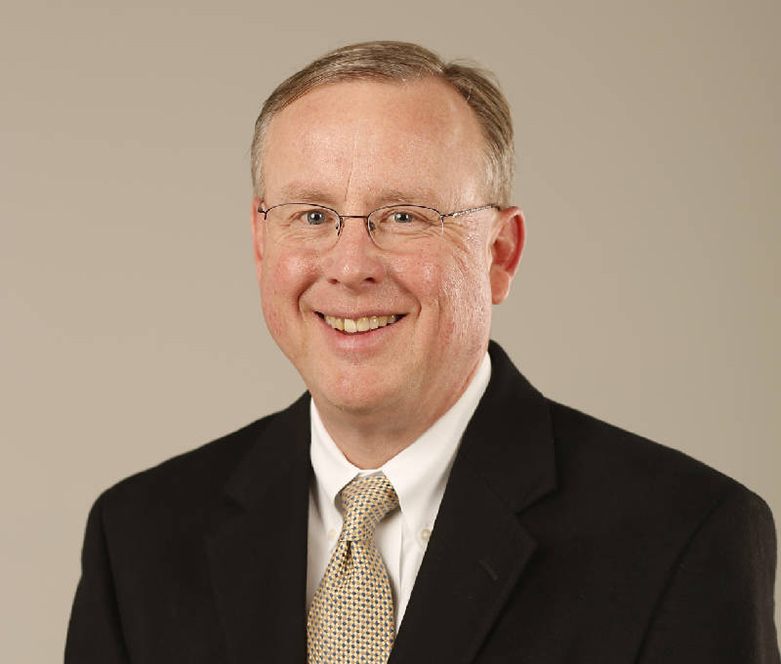Chris Haddock is a family medicine doctor in Ringgold, Georgia, and by all accounts a good one.
A native of Ringgold, Haddock works in an Erlanger Primary Care office on Nashville Street about two miles from his home, where he resides with his wife, Rachelle, and two sons Landon, 9, and Grady, 11.
"I love what I do," says Haddock, a 2000 graduate of the Georgia College of Medicine in Augusta and an avid fan of the University of Georgia Bulldogs sports teams. "When I sit in a room and listen to a patient's story and come up with a plan, that's by far the best part of my job."
Haddock came to our attention as a perennial winner of the North Georgia Best of the Best reader's choice contest sponsored by the Times Free Press. He has won in the primary-care physician category seven times.
There's something clearly special about this practice. Part of it may be the favorite-son halo. Although he attended East Ridge High School across the state line, where his parents were educators, Haddock's family roots run deep in Ringgold.
Part of his popularity may also be his down-home personality. In addition to being a doctor, he's also a gentleman farmer. There is an informality about his manner that people like.
His patients include acquaintances of his parents, former teachers and coaches, Sunday school friends. There is a level of trust that runs through his practice that's built on decades of handshakes and heartaches.
Haddock seemed like the perfect candidate to answer a question that has been on our minds lately: What makes a great doctor?
Without any time to prepare in advance, Haddock sat down with us this week. Here, he said, are some of the common habits of highly effective physicians.
1. They establish rapport.
"I try to get to know people on a personal level," Haddock says. "I tend to take a little more time with my patients. - I think my patients appreciate that because it strengthens the connection. I shoot the bull. When people have good stories, I can go down that rabbit hole."
2. They listen.
"As a retired surgeon in medical school taught me. 'If you shut up and listen, a patent will tell you what is wrong," Haddock says. "Part of the art of medicine is learning to tease information out of the larger patient story."
3. They don't stare at a computer.
Haddock had his examination rooms designed so he is always facing the patient, even while he's sitting at the computer.
"You lose some of that direct patient connection when you are staring at the computer," he says. "You are not treating a computer."
4. They embrace useful technology.
Telemedicine allows doctors to consult with specialists about cases, even if they are practicing medicine in remote locations, Haddock said.
"They have put computers in the middle of emergency rooms so doctors can contact specialists at the Medical College of Georgia, for example," Haddock says. "They can get expert information without putting [patients] on a helicopter and flying them 100 miles."
5. They look at the big picture.
"Good doctors look at how your medical issues interact," Haddock says. "That's difficult in today's environment where we are pushed to see more patients and get more done."
6. They remain empathetic.
When one of his patients becomes terminally ill, Haddock says, "I'm crushed. It kills me. If it ever gets to the point that it doesn't tear me up, I need to find a new job."
7. They ask for help.
Good doctors are constantly re-evaluating and reassessing their plans of action in complicated cases, he said.
"The more you know the more you realize you don't know everything," he said. "Sometimes you realize, 'this is outside my scope of knowledge. I need to ask for help.'"
Contact Mark Kennedy at mkennedy@timesfreepress.com or 423-757-6645.
Habits of Effective Patients
Patients can obviously contribute to their own treatment. Here are some habits that patients can cultivate that will help their doctors, according to Dr. Chris Haddock of Ringgold, Ga.1. Take ownership of your own care. Know the medicines you are on and why you are taking them.2. Advocate for yourself. Be the squeaky wheel. If you don’t understand the answers you are getting from a doctor, keep asking questions.3. Make a list of questions and concerns before you meet with a doctor. “As a doctor, I love it when a patient hands me a list and says these are my four big questions,” Haddock says.4. Prioritize your list. Bring up your most pressing concern first.Haddock explains, “Don’t, as you go out the door, say, “Oh, by the way, I’ve been having this crushing chest pain.”5. Be informed, but consider the source.“If you are getting info from the American Cancer Society or WEB MD or university web sites, those are reputable,” Haddock says. “But any dummy can put up a web site that says cinnamon will cure your diabetes.”6. Request prescription refills when you are in your doctor’s office.“It saves your physician and nurses time,” Haddock says. “A few mouse clicks and I can refill every med you’ve got for a full year.”7. Comply with doctors’ instructions.“Take the meds as prescribed,” Haddock says. “If you have questions or concerns, bring them up. That’s where we are here for.”
View other columns by Mark Kennedy


